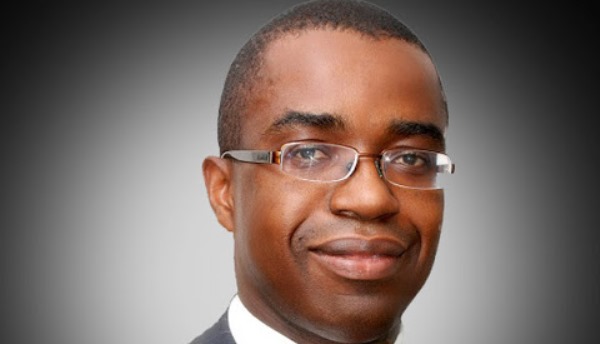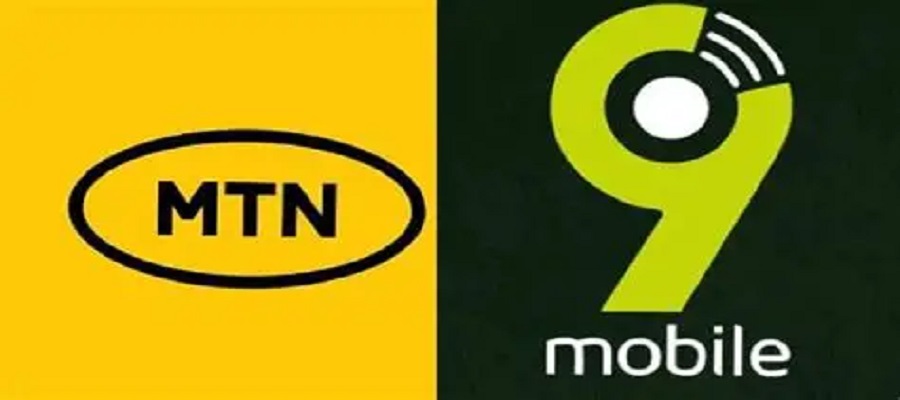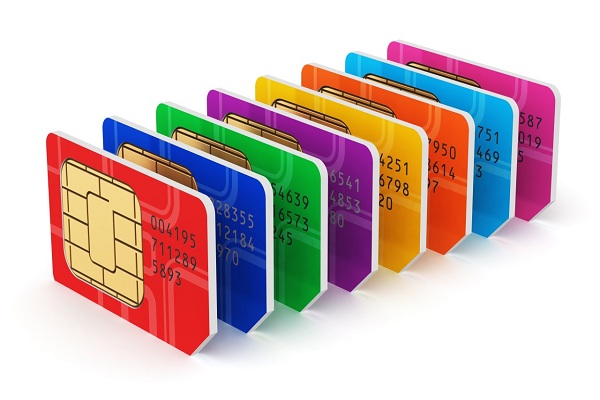Telecom
Sub-Saharan Africa’s Digital Exclusion Woes Persist – Goodluck

Akinwale Goodluck, head of Africa at the GSM Association (GSMA), has said that though a lot of people in Sub-Saharan Africa are covered by a mobile broadband (MBB) network, they still don’t subscribe to mobile Internet.

He noted that bridging the mobile Internet usage gap remains a significant challenge in the region.
Goodluck made the comments during a Webinar organised by Huawei, focusing on digital infrastructure as the foundation for national prosperity.
Global Internet penetration has passed 50%, with Sub-Saharan Africa at 24%, GSMA stats show.
“The biggest task for us as stakeholders in Sub-Saharan Africa now is to bring more and more people online, so that they can participate in the digital economy and then we can see this growth that we are expecting the Internet will provide for us in Sub-Saharan Africa,” said Goodluck.
“We’ve still got a relatively big coverage gap across the region but we are seeing operators supported by OEMs like Huawei and Ericsson beginning to develop more and more rurally sensitive solutions in terms of costs, technology and ability rollout, which is beginning to impact mobile broadband across rural areas.”
Barriers to entry
GSMA research shows 62% of the over 800 million people across Sub-Saharan Africa that don’t use the mobile Internet are covered by a MBB network.
According to Goodluck, this highlights that the problem is not necessarily coverage but that there are barriers stopping people from going online, which need to be addressed.
While barriers like digital literacy, affordability of devices and data bundles, security and coverage exist, he noted that what has become clear now is that there is a lack of relevance for a lot of people in Sub-Saharan Africa.
This problem also exists in developed markets for older demographics, as noted by the GSMA.
He explained: “Music and video are big drivers for Internet adoption and data growth traffic in Sub-Saharan Africa, but the reality is there needs to be a compelling proposition for a lot of people in the region to come online.
“People see no reason to invest in a data bundle. Because of poverty levels, people will only invest money in what will drive economic wellbeing and if they don’t see that proposition on the Internet, then they are not going to go online.
“It is on all stakeholders to find that sweet spot for people in Sub-Saharan Africa – what does he or she require, what are the benefits they would like to see and how do we bring them online.”
4G leap
Turning to the adoption of 4G in Sub-Saharan Africa, Goodluck said aside from South Africa, which is at 23%, other countries in Africa are below 10%, while the average for the region stands at about 7%.
This, he said, means there is capacity on the ground but there is no throughput. “We are building 10-lane highways but we are only riding bicycles on those highways. There is a lot of work to be done in terms of addressing challenges and barriers to 4G adoption.”
He continued that by the end of 2019, 3G connections, for the first time, overtook 2G. “This is a good indicator that more and more people are becoming Internet-aware and we envisage that by 2023, even 4G connections would have outstripped 3G connections. Between 2023 and 2025, 5G will begin to creep in,” he added.
GSMA’s “The Mobile Economy 2020” report shows the Sub-Saharan Africa region will only see 31 million 5G connections by 2025, which is 3% of the global average.
Goodluck concluded: “5G is going to be an enabler for all the things we are talking about 5G being able to do. It is inevitable for us in Sub-Saharan Africa but it is not imminent. 5G will drive a lot of complex operations but for us in Sub-Saharan Africa, we still need to get quite a few things right before we can rollout 5G.
“5G ultimately is going to be a big game-changer for the world and indeed Sub-Saharan Africa.”
Telecom
NCC, REA Move to Power Telecoms with Renewable Energy

Nigerian Communications Commission (NCC) and Rural Electrification Agency (REA) have teamed up to develop an initiative that will reduce the $350 million annual spending on diesel by telecom operators in Nigeria.

According to a press statement by Nnenna Ukoha, acting had of Public Affairs, NCC, this collaboration will focus on deploying renewable energy solutions to support telecom infrastructure, particularly in rural and underserved areas.
To that end, the two agencies have inaugurated what they called NCC–REA Collaboration Committee, aimed at deploying renewable energy solutions to power telecom infrastructure across the country.
According to the State of Africa’s Infrastructure Report 2025 by the Africa Finance Corporation, telecom operators in Nigeria consume more than 40 million litres of diesel every month, costing them over $350 million annually.
The statement read, “The Nigerian Communications Commission has formally inaugurated the NCC–REA Collaboration Committee, marking a pivotal step towards advancing Nigeria’s digital and energy inclusion objectives by developing modalities for the deployment of renewable energy to support telecom infrastructure in Nigeria.”
The inauguration ceremony, held on Friday, at the NCC Headquarters in Abuja, was presided over by Dr Aminu Maida, executive vice chairman and chief executive officer, NCC.
Maida was joined by Abba Aliyu, managing director of the REA, along with senior executives and committee members from both organisations.
Speaking at the event, Maida described the collaboration as a timely and strategic alignment of national priorities.
He noted that bridging the connectivity and power gaps in rural areas remains critical for Nigeria’s growth and development.
He highlighted that the demand for digital services and connected communities creates an opportunity for renewable energy to play a crucial role.
Maida further emphasised that the partnership goes beyond infrastructure; it is aimed at driving inclusion, reducing inequalities, and fostering shared prosperity.
“Whether it is powering a base station or enabling a child to access digital learning, this partnership has the potential to transform realities and bring opportunity closer to the people.
“This initiative is about more than infrastructure, it is about driving inclusion, bridging inequalities and creating the conditions for shared prosperity,” he was quoted in the statement.
He also noted that the initiative aligns with President Bola Tinubu’s Renewed Hope Agenda, which aims to ensure no community is left behind in Nigeria’s energy and digital transformation.
Aliyu, representing REA, expressed confidence in the transformative potential of the collaboration.
“This partnership will unlock sustainable development opportunities for millions of Nigerians, especially those in areas lacking traditional infrastructure,” he said.
He further emphasised that the collaboration would address both energy and connectivity gaps, benefiting those who are currently underserved.
The newly established NCC-REA Collaboration Committee will work to co-develop and implement integrated solutions that leverage renewable energy to power telecom sites.
The statement noted that the committee will also focus on sharing geospatial data to improve planning, aligning funding frameworks, and tracking the socio-economic impact of the project through clear performance indicators.
Telecom
NCC Approves MTN, 9Mobile Roaming Collaboration Deal

MTN Nigeria Communications Plc has announced the execution of a national roaming agreement with Emerging Markets Telecommunications Services Limited (9Mobile), a move that signals a major milestone in Nigeria’s telecommunications landscape.

The Nigerian Communications Commission (NCC), the industry’s regulatory authority, has approved the three-year deal, which allows 9Mobile subscribers to roam seamlessly on MTN Nigeria’s extensive network infrastructure across the country.
The agreement, effective immediately, will significantly enhance connectivity and user experience for 9Mobile customers, particularly in areas where its network coverage is limited.
By leveraging MTN’s expansive infrastructure, 9Mobile can now offer improved service reach and reliability, without duplicating capital-intensive investments in network deployment.
In a notice to the Nigerian Exchange Limited and the investing public, MTN Nigeria described the arrangement as a strategic collaboration that underscores its leadership in fostering innovation, industry cooperation, and operational efficiency.
The company emphasized that the initiative aligns with the NCC’s broader objective of promoting infrastructure sharing to improve telecommunications services nationwide.
“This agreement represents a significant step in our commitment to driving industry collaboration, improving customer experience, and supporting the NCC’s vision of a fully connected Nigeria,” said Karl Toriola, chief executive officer, MTN Nigeria.
“Delivering the scale required for telecommunications services in Nigeria requires strong collaboration between the private sector, public sector, and long-term investors. This agreement demonstrates what we can achieve when we collaborate, and we are delighted to announce it today after months of groundwork.”The national roaming deal enables subscribers from 9Mobile to access voice and data services through MTN’s network in areas where the former lacks adequate coverage.
This marks the first such large-scale, cross-network roaming arrangement between two major operators in Nigeria, setting a precedent for future cooperative efforts in the telecom industry.
MTN Nigeria highlighted that the agreement contributes to more effective use of telecommunications resources, reduces infrastructure duplication, and accelerates the expansion of mobile broadband access across underserved regions.
It also supports both operators’ sustainability objectives by maximizing existing investments and reducing the environmental impact of deploying overlapping network facilities.
“This strategic collaboration is yet another first in the country by MTN Nigeria and marks a significant milestone for the sustainability of the telecommunications industry,” the company stated.
“By enabling national roaming, MTN Nigeria is contributing to a more effective use of telecommunications resources and accelerating efforts to expand connectivity across the country.”
The agreement is expected to benefit not just subscribers and operators but also regulators and investors who have consistently advocated for policies that promote shared infrastructure and efficient capital utilization in Nigeria’s digital economy.
Uto Ukpanah, company secretary, MTN Nigeria, affirmed the company’s ongoing dedication to initiatives that create shared value.
“MTN remains committed to fostering innovation and partnerships that create sustainable value for all stakeholders while promoting digital and financial inclusion nationwide,” she noted.
With the successful rollout of this agreement, the telecoms industry is expected to see improved service delivery and expanded access to quality mobile services, especially in rural and semi-urban communities. The collaboration sets a benchmark for future inter-operator partnerships and reinforces the importance of regulatory support in advancing national connectivity goals.
Telecom
Don’t Visit Telecom Centers for Now — ALTON Warns of SIM Service Downtime

Association of Licensed Telecommunications Operators of Nigeria (ALTON) has announced a temporary disruption in SIM-related services across all mobile networks in the country.

The disruption, according to a statement on Wednesday, follows a directive from the National Identity Management Commission (NIMC), mandating mobile network operators (MNOs) to migrate to a new identity verification platform.
ALTON said the transition had triggered unforeseen technical challenges, affecting services such as SIM registration, replacement, and mobile number portability.
“While the new platform is intended to enhance the integrity and efficiency of identity management in Nigeria, unfortunately, the transition has temporarily impacted service delivery,” the association stated.
It added that MNOs would not be able to support SIM swaps, new activations, and related services until the issues are resolved.
ALTON noted that its members are working closely with the Nigerian Communications Commission (NCC), NIMC, and other stakeholders to restore normalcy.
The association appealed for public understanding and urged subscribers to delay visits to service centers for SIM-related matters.
“We sincerely apologise for the inconvenience and will continue to provide timely updates,” the statement read.
ALTON reaffirmed its commitment to delivering secure and quality telecommunications services to Nigerians.

 E-Financial2 days ago
E-Financial2 days agoAccess ARM Pensions Advocates Ways to Boost Civil Servants’ Retirement

 E-Business2 days ago
E-Business2 days agoFirm Warns as Social Media Scams Put Users’ Data at Risk

 Telecom1 day ago
Telecom1 day agoAVEVA Highlights Climate Impact Gains in 2024 Sustainability Report

 General News1 day ago
General News1 day agoAfCFTA Opens Opportunity for Logistics Sector

 Telecom2 days ago
Telecom2 days agoMTN Nigeria Launches “Mega Billion Promo” to Reward Customer Loyalty and Drive Financial Inclusion

 E-Business2 days ago
E-Business2 days agoNigeria Ranks 3rd in Africa for Ransomware Threats –INTERPOL

 Telecom1 day ago
Telecom1 day agoALTON Explains SIM-related Services Disruption Across Mobile Networks

 General News2 days ago
General News2 days agoNELFund Warns Students Against Fake Loan Portal



























